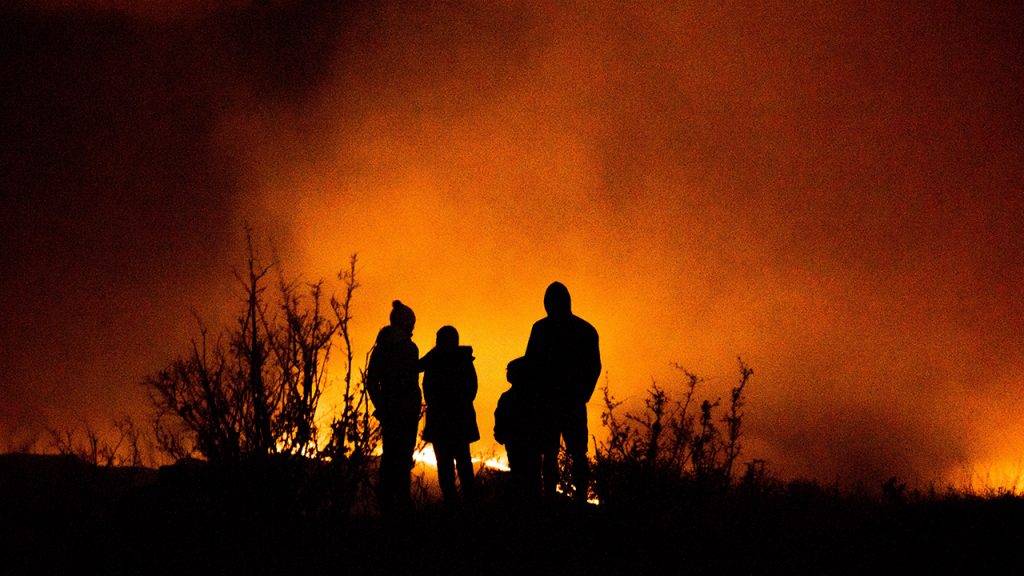
Climate change is “happening now, happening fast and must be addressed”
Our climate is changing across every region and ecosystem, at a scale which is unprecedented in thousands, if not hundreds of thousands of years, warns the latest report from the Intergovernmental Panel on Climate Change.
The landmark review says global warming will continue to rise until at least the mid-century under all emissions scenarios considered, very likely exceeding the Paris Agreement limit of 1.5°C, with increasing risks to our health, livelihoods, food security, and economy.
Beyond that, global temperatures will continue to rise, and conditions on Earth will become more extreme, unless deep reductions in greenhouse gas emissions take place in the coming decades.
These stark predictions, the culmination of nearly eight years of research by hundreds of experts, show – without doubt – that making strong and sustained reductions in emissions of greenhouse gases is the only way to prevent a spiral of worsening climate impacts.
And, although it may take twenty to thirty years for global temperatures to stabilise, there are immediate benefits to a low-emission society, such as breathing cleaner air.
For Professor Ed Hawkins, at the University of Reading and National Centre for Atmospheric Science, the evidence cannot be any clearer.
“It is a statement of fact, we cannot be any more certain. It is unequivocal and indisputable that humans are warming the planet.”
In turn, every increment of warming will amplify changes in the climate system, including increases in the frequency and intensity of heatwaves, heavy rainfall, droughts and tropical cyclones.
“The consequences continue to get worse for every bit of warming” explains Hawkins, who has summarised key findings on Twitter.
The implication of this, according to Professor Andy Turner from the University of Reading and National Centre for Atmospheric Science is that “every degree of warming that we manage to avert will prevent further increases in the severity and frequency of occurrence of impacts such as heavy rain, flooding, drought and heatwave that we’ve been seeing so much of recently.”
Unfortunately, Professor Hawkins adds, “for many of the consequences of climate change, there’s no going back. Sea level will continue to rise for centuries, with a possible but unlikely worst-case outcome of 1.5 metres rise this century.”
Today’s report delivers the first comprehensive review on the science of climate change in almost a decade, as part of the Intergovernmental Panel on Climate Change’s sixth assessment cycle.
Professor Rowan Sutton from the University of Reading and National Centre for Atmospheric Science describes the report as a “critical update to our knowledge of how anthropogenic climate change is unfolding.”
Over the last decade, Professor Sutton, who has contributed to several Intergovernmental Panel for Climate Change reports, has seen the evidence mount in support of climate scientist’s warnings.
“These changes and impacts are entirely expected based on previous assessments. But, it’s notable that the recent rate of global surface warming is at the upper end of expectations provided in the previous report. The impacts of climate change on people have become increasingly clear in every region of the world.”
Professor Rowan Sutton, University of Reading and National Centre for Atmospheric Science
Like Hawkins, Professor Sutton insists that we pay attention to the risks – and opportunities – ahead.
“The latest report makes plain that any hope that climate change might turn out to be not as bad as expected were forlorn. The predictions were accurate. It is happening now. It is happening fast. We must deal with it.”
“We need urgent action to reduce greenhouse gas emissions as rapidly as possible, and, at the same time, to invest in measures to adapt societies and become resilient to extreme weather events and conditions we’ve never experienced before.”
“We must also continue to monitor climate change very closely. By continuing to quantify and understand changes, and their impact, society can find effective and robust responses.”
The Intergovernmental Panel for Climate Change brings together hundreds of leading scientists to contribute to every report, and represents 195 nations. The organisation is tasked with providing policy-makers with regular assessments on climate change.
As part of the Sixth Assessment Cycle, the Intergovernmental Panel on Climate Change is also set to release reports on the impacts of climate change and mitigation over the next year.
The Centre for Environmental Data Analysis, managed by the National Centre for Atmospheric Science, is working to archive all data and key figures from the reports.
